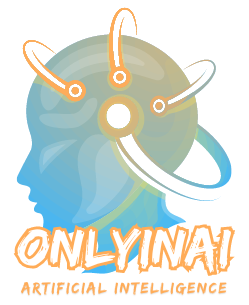Did you know the global AI in healthcare market is set to hit $34.42 billion by 2025? It’s growing at an amazing 41.5% each year. This shows how artificial intelligence (AI) is changing healthcare, making patient care better. As someone who loves AI, I’m thrilled to share how it’s changing the game in diagnosing diseases, improving treatment plans, and making healthcare work smoother.
AI uses machine learning to look at medical images with amazing accuracy. It also uses deep learning to make patient care more personal. In this article, we’ll look at how AI is changing healthcare. We’ll talk about its benefits and the challenges and ethical issues it brings.
Key Takeaways
- The global AI in healthcare market is expected to reach $34.42 billion by 2025, growing at an annual rate of 41.5%.
- AI is revolutionizing patient care by improving disease diagnosis, enhancing treatment recommendations, and streamlining healthcare administration.
- Machine learning and deep learning algorithms are being used to analyze medical images and personalize patient care.
- AI in healthcare has the potential to improve patient outcomes and reduce healthcare costs, but it also comes with challenges and ethical considerations.
- The future of healthcare will be increasingly shaped by the integration of AI technologies, and it’s crucial for healthcare providers to stay informed and adapt to these changes.
Introduction to AI in Healthcare
The healthcare industry has seen a big change with AI technology. From simple rule-based systems to today’s advanced machine learning and deep learning, AI’s growth in healthcare is amazing.
Evolution of AI in Healthcare
AI has made a big leap in healthcare, leading to better disease diagnosis and personalized treatments. These new AI methods bring more accuracy, lower costs, and better patient care.
Potential of AI in Transforming Healthcare
AI has huge potential to change healthcare in many ways. It can change clinical practice, from finding diseases automatically to giving personalized treatments. By using AI in clinical practice, doctors can make smarter choices, leading to better patient care and outcomes.
The growth of AI in healthcare is exciting for healthcare workers, researchers, and patients. As AI gets better, it will change how we diagnose, treat, and manage patients.
AI and Disease Diagnosis
AI is changing how we diagnose diseases in healthcare. It uses machine learning and deep learning to help spot diseases early. This can lead to better health outcomes for patients.
Machine Learning in Disease Diagnosis
Machine learning models can look at huge amounts of data to find patterns that help diagnose diseases. They go through lots of medical records and patient histories. This helps doctors find things they might miss.
Thanks to machine learning, doctors can diagnose complex diseases more accurately. In some cases, AI can even do better than humans.
Deep Learning in Medical Imaging Analysis
Deep learning has made a big impact on analyzing medical images. These algorithms can look at X-rays, CT scans, and MRI images very closely. They can spot problems and find early signs of cancer.
Using ai in disease diagnosis, machine learning in disease diagnosis, and deep learning in medical imaging analysis can change healthcare. It helps doctors make better decisions and helps patients get better care.
AI in Treatment Recommendations
Artificial intelligence (AI) is changing how doctors make treatment plans. By looking at lots of patient data, AI can give doctors advice that fits each patient’s needs. This makes treatment better and helps patients get the right care.
AI tools help doctors pick the best treatments and adjust medicines for each patient. Using ai in treatment recommendations and ai in clinical decision support makes care more precise and based on data. This leads to better health outcomes.
For instance, AI spots patterns in patient data like genes, health conditions, and past medicines. It then suggests the best treatments for each patient. This way, treatments work better and are safer.
| AI Application | Benefit |
|---|---|
| Personalized treatment recommendations | Improved patient outcomes and reduced risk of adverse reactions |
| Optimized medication dosages | Enhanced medication management and safety |
| Tailored treatment plans | Increased patient adherence and better overall care |
As AI use in healthcare grows, AI-powered treatment advice could change patient care a lot. By using data and advanced analytics, doctors can make smarter, more personalized decisions. This leads to better health results and a more efficient healthcare system.
how is ai used in healthcare

Artificial Intelligence (AI) is changing healthcare, making it better for personalized medicine and patient care. AI helps doctors give care that fits each patient’s needs, leading to better health outcomes.
AI in Personalized Medicine
AI looks at lots of patient data like genes, health history, and lifestyle. This helps create treatment plans just for each patient. It’s a big step away from treating everyone the same.
AI in Patient Monitoring
AI is also changing how we watch over patients. It tracks vital signs, symptoms, and if patients take their medicine. This lets doctors catch problems early and act fast. It means faster diagnosis and better treatments.
AI is making healthcare more personal and efficient. As it gets better, we’ll see more ways it changes healthcare for the better.
AI in Patient Engagement and Adherence
Artificial intelligence (AI) is changing how we engage with patients and help them stick to their treatment plans. Digital therapeutics are a new way to use AI to make patients understand their health better. This leads to them following their treatment plans better and getting healthier.
Digital Therapeutics and Health Literacy
Digital therapeutics use AI to give patients personalized help and information. They look at each patient’s data to make sure the advice fits their needs. This helps patients take charge of their health. It makes them more likely to follow their treatment plans.
Gamification and Digital Vaccines
Researchers are using AI to make health care fun and engaging, especially for kids. They’re creating games and digital vaccines that teach and reward healthy choices. This approach uses the fun of games to make learning about health exciting. It helps patients get more involved in their health care.
The use of AI in health care is becoming more important. By using digital therapeutics, health literacy, gamification, and digital vaccines, we can help patients take charge of their health. This leads to better health and a more efficient health care system.
AI in Healthcare Administration

Artificial Intelligence (AI) is changing the game in healthcare, not just in patient care but also in administration. Robotic Process Automation (RPA) is a key player in this change. It’s making healthcare organizations more efficient in managing their tasks.
RPA uses AI to automate tasks like prior authorization, updating patient records, and handling bills. This technology helps healthcare providers. It cuts down on paperwork, makes things run smoother, and lets doctors and nurses focus more on patient care.
Robotic Process Automation in Healthcare
More and more healthcare groups are turning to RPA. They see how it can make things better. AI-powered administrative solutions are making workflows better and boosting how well healthcare systems work.
- Streamlined prior authorization processes
- Automated patient record updates
- Improved billing and coding accuracy
- Reduced administrative workloads for healthcare staff
RPA takes over the boring tasks, so healthcare workers can spend more time on caring for patients. This means patients get better care, which leads to better health outcomes.
| AI in Healthcare Administration | Robotic Process Automation (RPA) |
|---|---|
| Streamlines administrative processes | Automates repetitive tasks |
| Reduces administrative burdens | Improves workflow efficiency |
| Frees up healthcare professionals | Enhances operational performance |
The healthcare world is always changing. AI in healthcare administration and robotic process automation will be key in making things better. They’ll help improve patient care and change the healthcare scene for the better.
Challenges and Ethical Considerations
The healthcare industry is embracing AI’s potential, but it faces challenges and ethical issues. Key concerns include data privacy and algorithmic bias. These issues can affect patient care and trust.
Navigating Data Privacy and Bias
AI in healthcare needs sensitive patient data. Keeping this data private is crucial to avoid serious harm. Also, AI’s algorithmic bias can make healthcare unfair, worsening existing social problems.
The Indispensable Role of Human Expertise
AI can improve healthcare, but human experts are still vital. They have knowledge and ethical judgment that AI lacks. Finding the right balance between AI and human skills is key for using these technologies well.
Dealing with the challenges of AI in healthcare is important. It involves looking at data privacy, algorithmic bias, and the role of human experts. By tackling these issues, healthcare can make the most of AI to change patient care for the better.
Future Developments in AI and Healthcare
The future of AI in healthcare is exciting. We’ll see big changes, like natural language processing (NLP) making clinical notes easier. Also, AI-powered robotic systems will change surgery.
Researchers are looking into AI for finding new medicines, personalized disease prevention, and AI health assistants. These emerging ai technologies in healthcare will change patient care a lot. They will bring new innovation and change to healthcare.
The future of ai in healthcare means better diagnoses and treatment plans. AI will change healthcare in big ways, like finding diseases early and using resources better. It will also make patients more involved in their care.
Healthcare is getting ready for these new technologies. They offer chances to improve patient care, cut costs, and make care better overall. The future of AI in healthcare is set to change how we see patient care. It will make healthcare better for both doctors and patients.
Conclusion
AI is changing healthcare in big ways. It helps with diagnosing diseases and making treatment plans better. It also makes talking to patients and handling paperwork easier.
But, there are big challenges like keeping patient data safe and needing human skills. Still, AI can make healthcare better by improving patient care and making things more efficient. It’s bringing new ideas to healthcare.
AI is making healthcare more focused on each patient’s needs. It uses data and smart technology to help doctors and nurses give the best care. As AI gets better, it will keep changing healthcare for the better.
In short, AI is making healthcare better by combining advanced medicine, smart data, and automation. This means patients will get care that’s just right for them. As we move forward with AI in healthcare, we see a bright future ahead.


